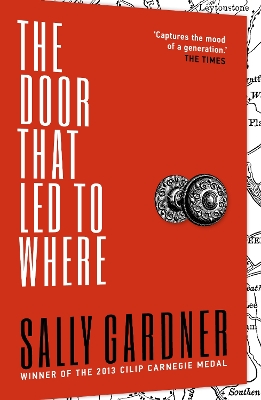"Do you know the rhyme about the magpie?"No"
"One for sorrow,
Two for luck,
Three for a wedding,
Four for death;
Five for Silver,
Six for gold,
Seven for a secret,
Not to be told-"
The premise of this book drew me in and I couldn't get enough of it. So much adventure happens in such a short book and I couldn't get enough of it!
AJ is a young man who appears to be going nowhere. He comes form a single family household with a mother who isn't very kind and expects great things from him, but offers no real help in order for him to achieve those things. That is until she gets him a job at a prestigious law firm. This is where things start looking up for AJ. Not only does he end up liking his job, he also realizes that somehow these people are connected to his dad once he finds a key. This leads him onto to find many different characters that help him out along the way.
This key he learns not only opens and locks a door, but it is the 'key' to the past. His way to literally travel back and forth in London 1830 to present. Something that is highly wanted and if he gets caught could lead him into major trouble.
We also have AJ's two best friends who have also not had an easy life and because of this I considered these three friends to be a bit like the three musketeers. When life starts going horribly wrong for them AJ decides to help them out and does something that could massively mess things up for everyone. But he doesn't it anyway in order to protect those he cares about. While he's protecting his friends, and trying to find out what happened to his father, he is also trying to help solve two cases that are somehow connected in the past and in present day London.
For me this book was almost perfect. It had time travel, history, and a character who is just trying to do the right thing. While I also agree with others that this book could have been longer, in order to make it even better. I also feel like its really good at the length it is now. Sure I would have loved to learn more about certain things, but I also loved the shortness because it showed how great of a writer Gardner is. She made not only present day London believable but also 1830's London believable all while making a story line that was a part of both and fit together perfectly. The characters actually seemed real and there wasn't any other fantasy element besides time traveling which was nice for a change.
Overall I loved this book and I want to read more by this author!
P.S.
Now can we please get a companion novel to this to see what continues to happen on the other side?
Blog Twitter Instagram
